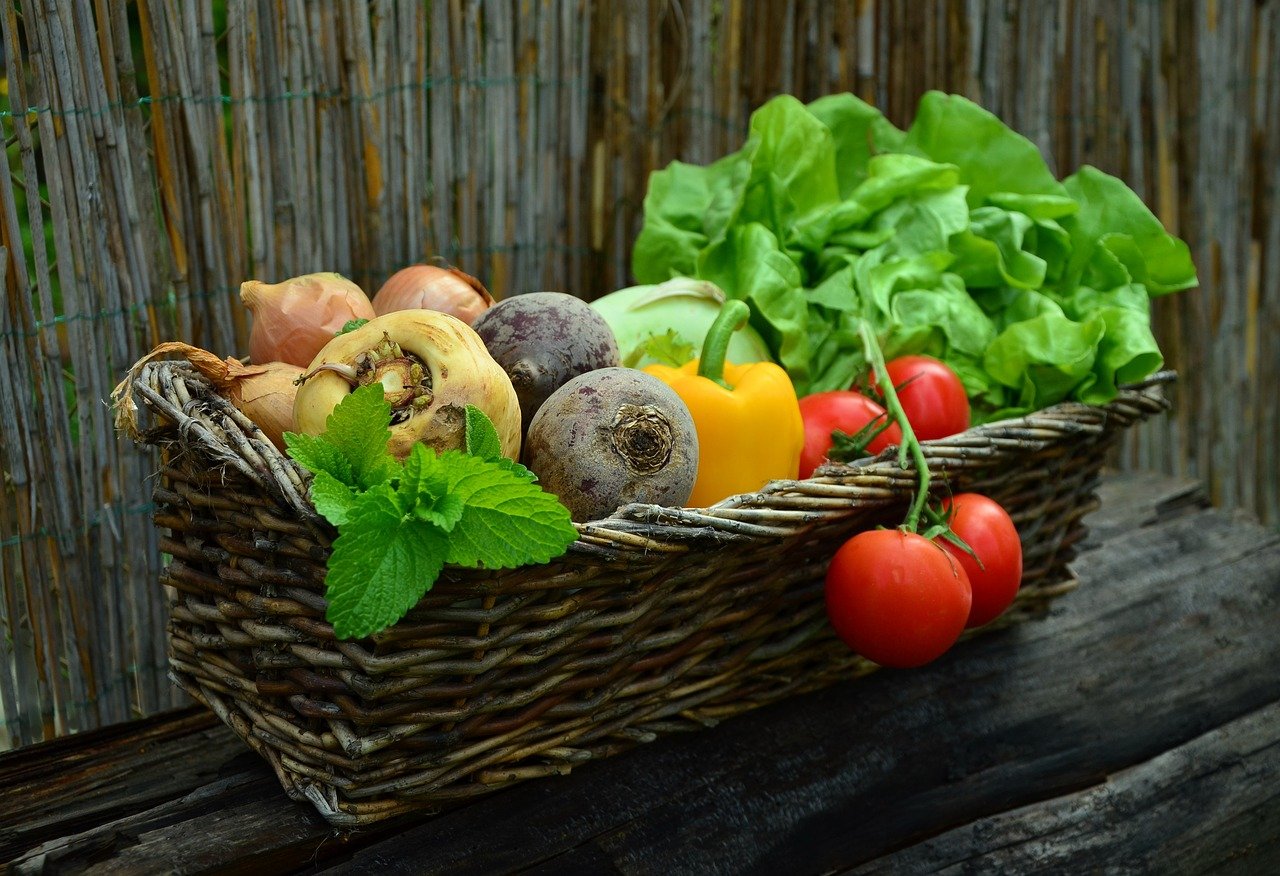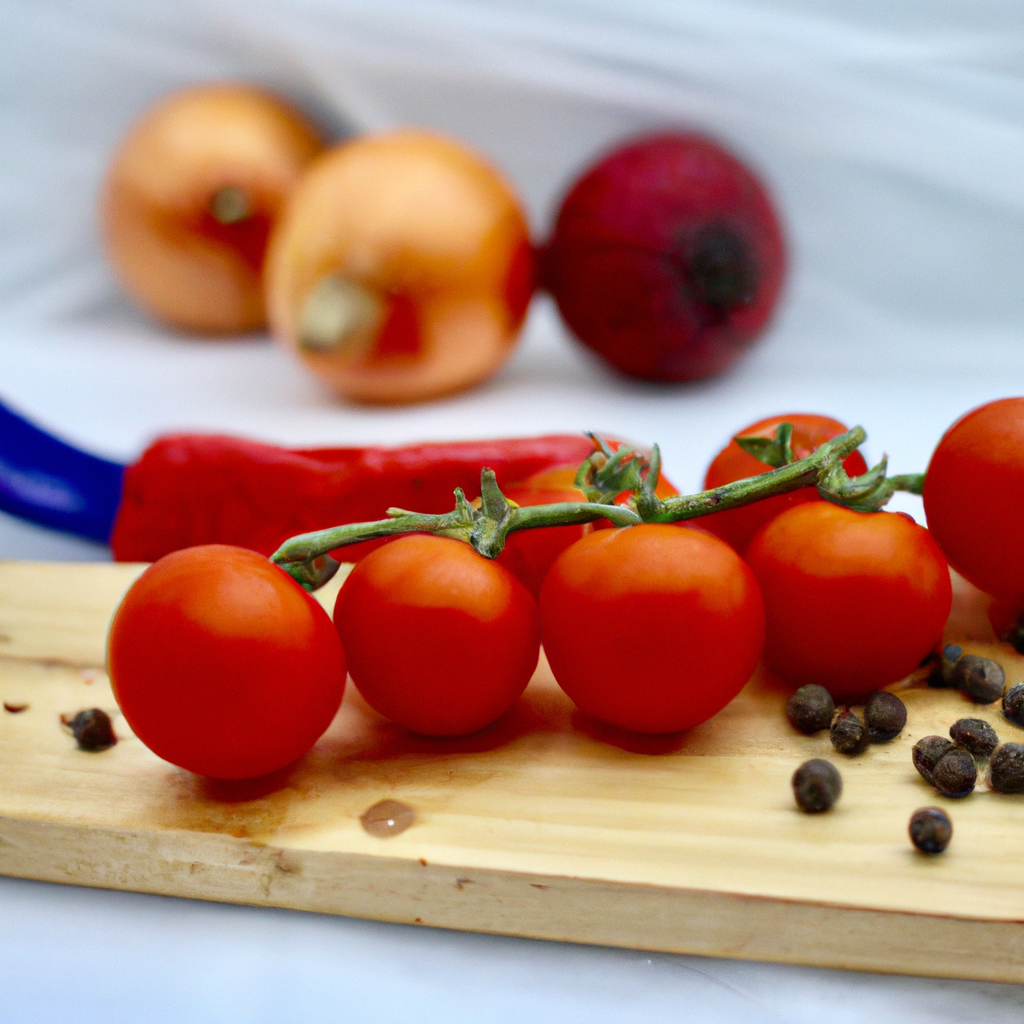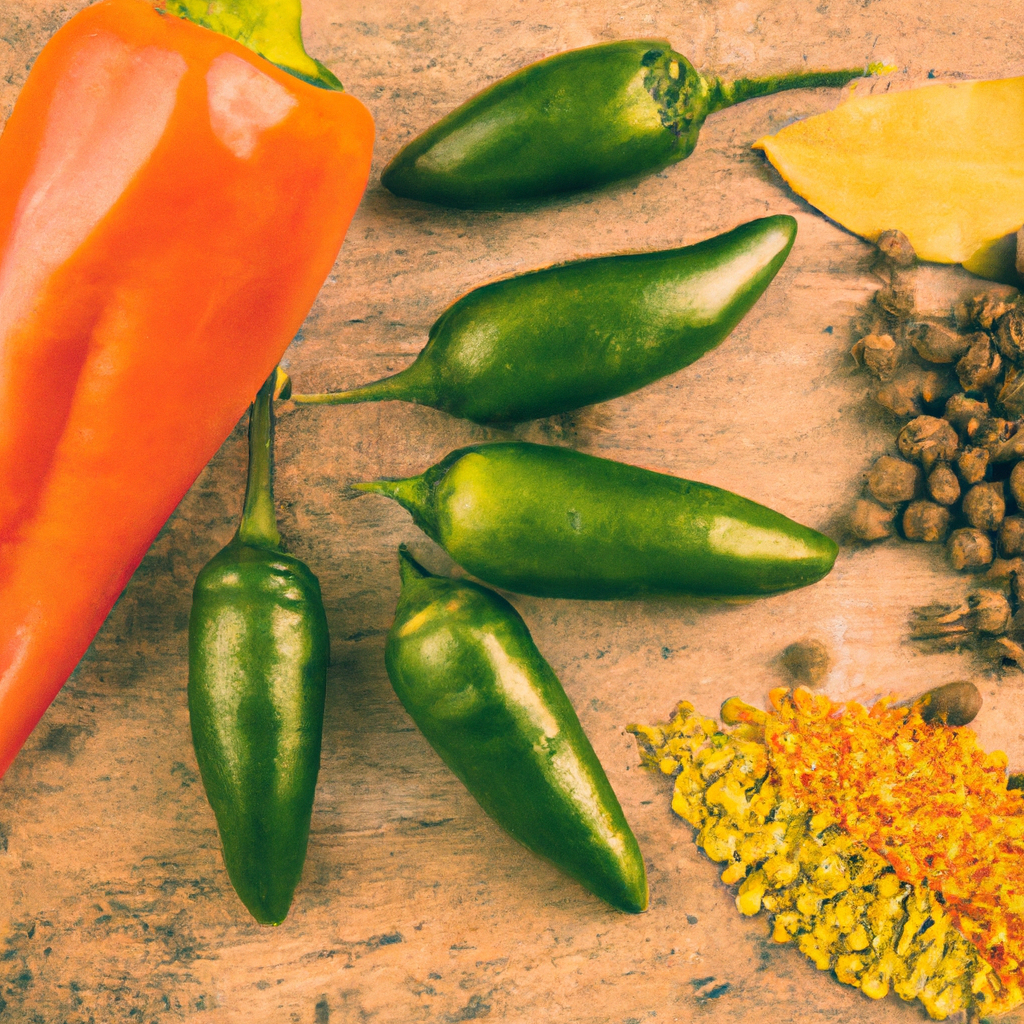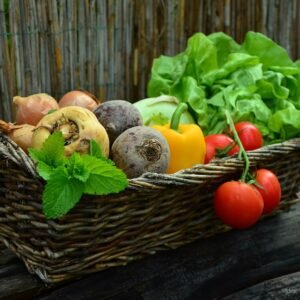Looking to add some flavor to your culinary creations? Look no further than your local farmers market or neighborhood grocery store. In this article ‘Cooking with Local Ingredients: Enhancing Flavor, Sustainability, and Community’, discover the benefits and joys of cooking your meals using local ingredients. By utilizing the freshest produce and supporting local farmers, you not only enhance the taste of your dishes but also contribute to a more sustainable and eco-friendly lifestyle. So grab your apron and get ready to embark on a culinary adventure that celebrates the flavors of your community.

Benefits of Cooking with Local Ingredients
Supporting Local Agriculture
When you choose to cook with local ingredients, you are directly supporting your local farmers and agricultural community. By purchasing their products, you are providing them with a reliable source of income, which helps ensure the sustainability of their farms. This, in turn, helps to preserve and strengthen local agriculture, promoting food security in your community.
Freshness and Quality
One of the most rewarding aspects of cooking with local ingredients is the unparalleled freshness and quality they offer. Locally sourced ingredients are often harvested at their peak ripeness, ensuring maximum flavor and nutritional value. Additionally, by buying directly from local farmers, you can have confidence in the quality of the ingredients you’re using, as you are able to see firsthand how they are grown and produced.
Environmental Sustainability
By opting for local ingredients, you are contributing to a more environmentally sustainable food system. Locally sourced ingredients require less transportation and refrigeration, reducing greenhouse gas emissions and energy consumption. Additionally, local farmers tend to follow sustainable farming practices that prioritize soil health, biodiversity, and water conservation. Cooking with local ingredients allows you to minimize your carbon footprint and support sustainable agricultural practices.
Finding Local Ingredients
Farmers’ Markets
Farmers’ markets are excellent places to find a wide variety of fresh, locally grown ingredients. From fruits and vegetables to meat, dairy, and baked goods, farmers’ markets offer a diverse range of products directly from the producer. Not only can you stock up on seasonal ingredients, but you can also interact with the farmers themselves, learning about their farming practices and getting suggestions on how to best utilize their products.
Community Supported Agriculture (CSA)
Joining a Community Supported Agriculture (CSA) program allows you to receive a regular supply of fresh local produce directly from a farmer or a group of farmers. By becoming a member of a CSA, you are not only ensuring a consistent supply of seasonal ingredients but also supporting local farmers financially. CSA members often receive a weekly or bi-weekly box of freshly harvested produce, providing an exciting opportunity to cook with a diverse selection of ingredients.
Local Food Co-ops
Local food co-ops, also known as cooperatives, are community-owned grocery stores that focus on sourcing and selling local products. These establishments provide a convenient way to access a wide range of local ingredients, including fruits, vegetables, meats, dairy, and more. Shopping at a local food co-op allows you to support local farmers while enjoying the convenience of one-stop shopping for all your cooking needs.
Building Relationships with Local Farmers
Visiting the Farms
To deepen your connection with local agriculture, consider visiting the farms where your ingredients are produced. Many farmers welcome visitors and offer farm tours, giving you a firsthand experience of their operations. Exploring the farms not only allows you to witness the hard work that goes into growing your food but also provides an opportunity to ask questions, learn about their farming methods, and gain a deeper appreciation for the food on your plate.
Participating in Community Events
Engaging in community events related to local agriculture is an excellent way to build relationships with local farmers. These events can range from harvest festivals to farm-to-table dinners and cooking workshops. By participating, you not only support local farmers but also immerse yourself in the vibrant community that surrounds them. These events often provide opportunities to meet and connect with like-minded individuals who share your passion for cooking with local ingredients.
Seasonal Cooking with Local Ingredients
Understanding Seasonal Availability
One of the joys of cooking with local ingredients is the opportunity to embrace the rhythm of the seasons. Understanding the seasonal availability of different ingredients allows you to plan your meals accordingly and make the most of what is fresh and abundant. By aligning your cooking with the seasons, you not only enjoy the best flavors but also support the natural agricultural cycles in your region.
Incorporating Seasonal Flavors
Seasonal ingredients bring a burst of fresh flavors to your meals. From crisp apples in the fall to juicy tomatoes in the summer, each season offers a unique palette of tastes to explore. By incorporating seasonal flavors into your cooking, you infuse your dishes with the essence of the current season and showcase the best that local agriculture has to offer. Experimenting with new recipes and ingredients can be a delightful adventure for your taste buds.

Exploring Regional Specialties
Identifying Local Dishes
Every region has its culinary specialties, and discovering these local dishes is an exciting way to embrace the flavors of your community. Research and explore the traditional dishes that have been passed down through generations in your area. From hearty stews to delicate pastries, each dish tells a story and reflects the rich culinary heritage of the region. By cooking these local dishes, you not only connect with your community’s food culture but also support local ingredients that are often integral to these recipes.
Trying Traditional Recipes
In addition to local dishes, there are often traditional recipes that can transport you to different cultures within your own community. By trying these recipes, you not only expand your culinary horizons but also honor and celebrate the diversity of food cultures. Seek out cookbooks, online resources, and local cooking classes that specialize in ethnic cuisines to discover new and exciting dishes that utilize local ingredients.
Supporting the Local Economy
Job Creation
When you choose to cook with local ingredients, you are indirectly supporting job creation in your community. The agricultural sector is a significant employer, providing jobs to farmers, farmworkers, and those involved in the distribution and processing of local food. By purchasing local ingredients, you help sustain these jobs, contributing to the economic vitality of your community.
Keeping Money in the Community
When you buy local ingredients, a larger portion of your food dollars stays within your community. Local farmers and food producers often reinvest their income in the local economy, supporting other businesses and creating a multiplier effect. By choosing to cook with local ingredients, you contribute to the overall economic health of your community, helping to build a strong and resilient local food system.

Health Benefits of Cooking with Local Ingredients
Reducing Food Miles
Food miles refer to the distance that food travels from the farm to your plate. By cooking with local ingredients, you significantly reduce these food miles. This means that the produce on your plate is fresher and more nutrient-dense, as it spends less time in transit and storage. Additionally, fewer food miles also result in a lower carbon footprint, contributing to a more sustainable food system.
Less Preservatives and Additives
Locally sourced ingredients often require fewer preservatives and additives compared to their mass-produced counterparts. This is because locally grown produce can quickly make its way from the field to your plate, requiring fewer chemicals to maintain its freshness during transportation and storage. By cooking with local ingredients, you can enjoy a more natural and wholesome diet, free from unnecessary preservatives and additives.
Access to Organic Options
Local farmers are more likely to follow organic farming practices, which prioritize environmentally friendly methods and sustainable farming techniques. By cooking with local ingredients, you increase your access to fresh and organic produce, allowing you to make healthier choices for yourself and your family. Organic options typically have higher nutrient content and are grown without the use of synthetic pesticides and fertilizers, promoting both personal and environmental well-being.
Preserving Cultural Heritage
Preserving Traditional Food Practices
Cooking with local ingredients plays a vital role in preserving traditional food practices and culinary heritage. Traditional recipes often rely on specific local ingredients and cooking techniques that have been passed down through generations. By using these ingredients, you help preserve and honor the cultural significance of these recipes, ensuring that they continue to be cherished and enjoyed by future generations.
Promoting Cultural Diversity
Food is a powerful medium for promoting cultural diversity. By cooking with local ingredients, you not only celebrate the diversity within your community but also foster a deeper understanding and appreciation of different cultures. Each region’s culinary traditions reflect its unique history, traditions, and cultural interactions. By incorporating local ingredients and exploring diverse recipes, you enrich your culinary journey and promote cultural diversity in your own kitchen.

Promoting Food Security
Reducing Reliance on Imported Food
Cooking with local ingredients is an effective way to promote food security by reducing reliance on imported food. By supporting local agriculture and consuming locally produced food, you contribute to the resilience of your community’s food system. Local farmers provide a steady supply of fresh and nutritious ingredients, ensuring that your community has access to essential food items even in times of unforeseen disruptions or global crises.
Ensuring Long-Term Sustainability
Long-term sustainability of local agriculture is crucial for maintaining food security. By cooking with local ingredients, you support farmers who are dedicated to sustainable farming practices, such as soil conservation, water management, and biodiversity preservation. By supporting these practices, you help safeguard the availability of local ingredients for future generations, ensuring a sustainable and secure food supply for your community.
Cooking with Local Ingredients on a Budget
Buying in Bulk
Buying local ingredients in bulk can be a cost-effective way to cook meals while supporting local agriculture. Look for opportunities to purchase larger quantities of seasonal produce, grains, or meat directly from farmers or through community-supported initiatives. By buying in bulk, you may be able to secure lower prices and stock your pantry with nutritious and flavorful ingredients for future cooking endeavors.
Meal Planning
Meal planning is a practical strategy to maximize the use of local ingredients while staying within your budget. By planning your meals in advance and incorporating seasonal produce, you can reduce food waste and make the most out of the ingredients you have on hand. Additionally, meal planning allows you to organize your shopping list efficiently, ensuring that you only purchase what you need and avoid unnecessary expenditures.
Preserving and Canning
Preserving and canning local ingredients is an excellent way to extend their shelf life and enjoy their flavors throughout the year. By preserving seasonal fruits and vegetables, you can stock your pantry with homemade jams, pickles, and sauces that capture the essence of the local harvest. This not only reduces food waste but also allows you to enjoy local flavors even when certain ingredients are out of season.
In conclusion, cooking with local ingredients offers a multitude of benefits. Not only does it support local agriculture, promote environmental sustainability, and boost the local economy, but it also provides an opportunity to explore regional specialties, promote food security, and preserve cultural heritage. By choosing to cook with local ingredients, you can enhance the freshness and quality of your meals, prioritize your health, and embrace the vibrancy and diversity of your community’s culinary traditions. So, next time you step into the kitchen, consider the many advantages of cooking with local ingredients and savor the incredible flavors they bring to your table.


